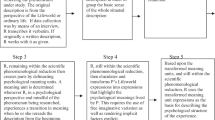Abstract
Idiomatic phrases differ in their degree of analyzability. Some idioms are highly decomposable with their parts independently contributing to their overall figurative meaning (e.g. pop the question) while other idioms are nondecomposable with parts that do not contribute to their idiomatic meaning (e.g. kick the bucket). Nonetheless, even the parts of nondecomposable idioms might have a role in determining what they specifically mean. For example, the verb kick, in kick the bucket implies a quickness or suddenness to the death such that kick the bucket means “to die suddenly” rather than “to die slowly.” We report the findings of three experiments showing, in different ways, how the action of the verb contributes to the overall figurative meaning for some nondecomposable idioms. Together, these studies suggest that even nondecomposable idioms are not truly frozen as, at least, part of their overall figurative meanings are shaped by the particular verbs used in these phrases.
Similar content being viewed by others
REFERENCES
Boatner, M., Gates, J., & Makkai, A. (1975). A dictionary of American idioms. New York: Baron's Educational Series.
Cacciari, C., & Glucksberg, S. (1991). Understanding idiomatic expressions: The contribution of word meanings. In G. B. Simpson (Ed.), Understanding word and sentence (pp. 217-240). Amsterdam: Elsevier Science Publishers.
Chomsky, N. (1980). Rules and representations. New York: Columbia University Press.
Clark, C. W. (Ed.). (1989). Webster's new thesaurus. New York: Windsor Court.
Fraser, B. (1970). Idioms within a transformational grammar. Foundations of Language, 6, 22-42.
Gibbs, R. W., Jr. (1991). Semantic analyzability in children's understanding of idioms. Journal of Speech and Hearing Research, 34, 613-620.
Gibbs, R. W., Jr. (1992). What do idioms really mean? Journal of Memory and Language, 31, 485-506.
Gibbs, R. W., Jr. (1993). Process and products in making sense of tropes. In A. Ortony (Ed.), Metaphor and thought (2nd ed.) (pp. 252-276). New York: Cambridge University Press.
Gibbs, R. W., Jr. (1994). The poetics of mind: Figurative thought, language, and understanding. New York: Cambridge University Press.
Gibbs, R. W., Jr. (1995). Idiomaticity and human cognition. In M. Everhaert, E. J. van der Linden, A. Schenk, & R. Schreuder (Eds.), Idioms: Structural and psychological perspectives (pp. 97-116). Hillsdale, NJ: Erlbaum.
Gibbs, R. W., Jr., & Nayak, N. P. (1989). Psycholinguistic studies on the syntactic behavior of idioms. Cognitive Psychology, 21, 100-138.
Gibbs, R. W., Jr., Nayak, N. P., Bolton, J. L., & Keppel, M. E. (1989). Speakers' assumptions about the lexical flexibility of idioms. Memory & Cognition, 17, 58-68.
Gibbs, R. W., Jr., Nayak, N. P., & Cutting, C. (1989). How to kick the bucket and not decompose: Analyzability and idiom processing. Journal of Memory and Language, 28, 576-593.
Glucksberg, S. (1993). Idiom meaning and allusional content. In C. Cacciari & P. Tabossi (Eds.), Idioms: Processing, structure, and interpretation (pp. 3-26). Hillsdale, NJ: Erlbaum.
Katz, J. (1973). Compositionality, idiomaticity, and lexical substitution. In S. Anderson & P. Kiparsky (Eds.), A Festschrift for Morris Halle (pp. 357-376). New York: Holt, Rinehart & Winston.
Kreuz, R. J., & Graesser, A. C. (1991). Aspects of idiom interpretation: Comment on Nayak and Gibbs. Journal of Experiment Psychology: General, 120, 90-92.
Lakoff, G. (1987). Women, fire, and dangerous things: What categories reveal about the mind. Chicago: The University of Chicago Press.
Long, T., & Summers, D. (1979). Longman dictionary of English idioms. London, England: Longman.
Makkai, A., Boatner, M. T., & Gates, J. E. (1991). Handbook of commonly used American idioms. New York: Barrons.
Murray, J. A., Bradley, H., Craigie, W. A., & Onions, C. T. (Eds.). (1989). The Oxford English Dictionary (2nd ed. prepared by J. A. Simpson, & E. S. C. Weiner). Oxford, England: Clarendon Press.
Nunberg, G. (1978). The pragmatics of reference. Bloomington: Indiana University Linguistics Club.
Author information
Authors and Affiliations
Rights and permissions
About this article
Cite this article
Hamblin, J.L., Gibbs, R.W. Why You Can't Kick the Bucket as You Slowly Die: Verbs in Idiom Comprehension. J Psycholinguist Res 28, 25–39 (1999). https://doi.org/10.1023/A:1023235403250
Issue Date:
DOI: https://doi.org/10.1023/A:1023235403250




